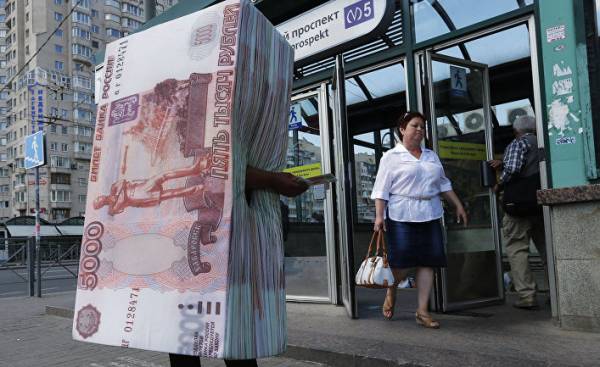
The state of the Russian economy and some of the satellite countries is eloquently demonstrated by the inability of its leaders to ensure the long-term well-being. This suggests that misconceptions can only lead to serious consequences.
Today, a quarter century after the end of the cold war, too many countries of the former Soviet bloc remain under the control of authoritarian leaders. Some of them, for example, the President of Russia Vladimir Putin, have learned to hide behind a more persuasive cover elections than their predecessors the Communists. They presented their system as an “illiberal democracy” based on pragmatism, not some universal historical theory. These leaders claim that they are simply more productive in achieving results.
If you talk about inciting nationalist sentiment or the suppression of dissidents, this productivity is not in doubt. However, these same leaders are less effective in stimulating long-term economic growth. Russia was once one of the two superpowers, and now its GDP is about 40% of Germany’s GDP and just over 50% of French GDP. In terms of life expectancy Russia is in 153 place in the world, right behind Honduras and Kazakhstan.
The level of per capita income, Russia is now in 73rd place in the world (by purchasing power parity), significantly behind the former satellite countries of the Soviet Union in Central and Eastern Europe. The country has lost industry: the vast majority of its exports are natural resources. Russia has become a country with a “normal” market economies, it became a kind of state capitalism for their own.
Yes, Russia still competes with heavyweights such areas as nuclear weapons. She still has veto power in the UN. As shown by the recent hacker attack on the Democratic party in the United States, Russia has kibersporte that allow it to actively intervene in the electoral process in Western countries.
Many pinned more hopes on Russia (and all former USSR countries), the fall of the “iron curtain”. After 70 years of communism, the transition to a democratic, market economy could not be simple. But because a democratic, market capitalism had clear advantages in comparison with a system that had just collapsed, it was assumed that the economy will begin to flourish, and citizens will begin to demand expansion of their rights.
What went wrong? Whom to blame (if any blame here at all)? Was it possible to cope with the post-Communist transition in Russia in the best way?
We will never be able to give to these questions accurate answers: history has no subjunctive mood. But I personally believe that in part we are dealing with the consequences of the flawed Washington consensus, whose influence passed transition period in Russia. This influence is expressed through a strong emphasis on privatization, which made the reformers, not paying attention to how it happened, speed was more important than anything else, in particular the establishment of the institutional infrastructure that is necessary for the normal operation of the market economy.
Today, when it has been over 25 years since the beginning of the process of transition to a market economy, those who argued that the very fact of private property rights will lead to increased demand for the observance of the principles of the rule of law, I have to admit that they were wrong. Russia and many other countries that entered the transition period, lagging behind the developed countries even more than before. In some of these countries GDP is now lower than it was in the beginning of the process.
In Russia, many believe that the U.S. Treasury have imposed on the country policies consistent with the Washington consensus, with the aim of weakening it. These views were corroborated by the facts of deep corruption in the team of Harvard University who was brought to “help” Russia in its transition process; these facts were described in a detailed article published in 2006.
However, I believe that the reality was not so treacherous: the wrong idea, even with the best intentions, really can have very serious consequences. And opportunities for personal gain, opened in Russia, was just large enough for the front of them was hard to resist. It is clear that the process of democratization in Russia demanded efforts for common prosperity, not the policies that led to the creation of the oligarchy.
The failures of the West, however, must not weaken its determination to continue to work on establishing democratic States that respects human rights and international norms. The US is now trying to stop the normal thing to do extremism of the administration trump (among its manifestations, for example, the ban on entry into the country of individual Muslims, environmental policy based on denial of scientific facts, breaches of international trade obligations). But just as we cannot allow the normalization of violations of international law in other countries, such as Russia’s actions in Ukraine.







